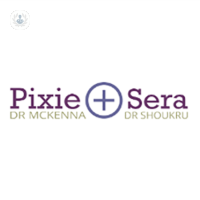What are sexually transmitted infections (STIs)?
Sexually transmitted infections (STIs) are a set of infectious diseases that are transmitted from one person to another through sexual contact (vaginally, anally or orally). There are numerous types of STIs, including:
- Chlamydia
- Gonorrhoea
- Genital herpes
- HIV
- Genital warts
- HPV (human papillomavirus)
- Syphilis
- Trichomoniasis
- Pubic lice (‘crabs’)

What symptoms do STIs present?
Sexually transmitted infections can cause symptoms, although not always. Some patients may experience the following symptoms:
- Pain when peeing
- Unusual discharge from the vagina, penis or anus
- A rash
- Itchy genitals
- Vaginal bleeding
- Blisters or sores around the genitals
- Flu-like symptoms
- Skin growths around the genitals
What causes sexually transmitted infections?
The cause of sexually transmitted infections is either bacteria, parasites, fungi or viruses.
Can STIs be prevented?
Abstinence is the only way to completely prevent STIs, however, making sexual contact safer will also reduce the possibility of contracting an STI. If used properly, condoms can provide effective protection against many STIs. However, whilst condoms protect you from contact with fluids (semen or blood), they may not protect you from skin-to-skin transmission. It is also a good idea to have regular STI health checks if you are sexually active, to allow for early diagnosis and treatment and to stop the spread of STIs among the population. It is also a good idea to have the HPV vaccine, which is currently offered to girls at school.
What is the treatment for STIs?
Not all sexually transmitted infections can be cured. Those that are caused by bacteria, such as chlamydia, are treated with antibiotics. However, those that are caused by a virus, such as genital herpes, treatment is limited to alleviating the symptoms. STIs such as lice or trichomoniasis can be treated with topical medications.
11-13-2012 07-19-2023Sexually transmitted infections (STIs)
Mr Jullien Brady - Obstetrics & gynaecology
Created on: 11-13-2012
Updated on: 07-19-2023
Edited by: Aoife Maguire
What are sexually transmitted infections (STIs)?
Sexually transmitted infections (STIs) are a set of infectious diseases that are transmitted from one person to another through sexual contact (vaginally, anally or orally). There are numerous types of STIs, including:
- Chlamydia
- Gonorrhoea
- Genital herpes
- HIV
- Genital warts
- HPV (human papillomavirus)
- Syphilis
- Trichomoniasis
- Pubic lice (‘crabs’)

What symptoms do STIs present?
Sexually transmitted infections can cause symptoms, although not always. Some patients may experience the following symptoms:
- Pain when peeing
- Unusual discharge from the vagina, penis or anus
- A rash
- Itchy genitals
- Vaginal bleeding
- Blisters or sores around the genitals
- Flu-like symptoms
- Skin growths around the genitals
What causes sexually transmitted infections?
The cause of sexually transmitted infections is either bacteria, parasites, fungi or viruses.
Can STIs be prevented?
Abstinence is the only way to completely prevent STIs, however, making sexual contact safer will also reduce the possibility of contracting an STI. If used properly, condoms can provide effective protection against many STIs. However, whilst condoms protect you from contact with fluids (semen or blood), they may not protect you from skin-to-skin transmission. It is also a good idea to have regular STI health checks if you are sexually active, to allow for early diagnosis and treatment and to stop the spread of STIs among the population. It is also a good idea to have the HPV vaccine, which is currently offered to girls at school.
What is the treatment for STIs?
Not all sexually transmitted infections can be cured. Those that are caused by bacteria, such as chlamydia, are treated with antibiotics. However, those that are caused by a virus, such as genital herpes, treatment is limited to alleviating the symptoms. STIs such as lice or trichomoniasis can be treated with topical medications.


Bartholin cysts and abscesses: What are they, and how are they treated?
By Mr Mahantesh Karoshi
2024-12-15
Leading women's health expert and consultant gynaecologist Mr Manhantesh Karoshi provides an expert insight to Bartholin cysts, or Bartholin abscesses, in this informative article. See more


Here's what happens if syphilis is left untreated
By Dr Indrajith Karunaratne
2024-12-15
Syphilis has begun to spread more widely in developed countries in recent years, putting many people's health at risk. Dr Indrajith Karunaratne explains the early and late-stage symptoms, as well as the consequences of untreated syphilis. See more


STIs: symptoms, testing and when to see a urologist
By Mr Mathias Winkler
2024-12-15
STIs (sexually transmitted infections) are very common. In fact, about 20 per cent of people in their 20s have experienced an STI. Usually, patients will first go straight to a GP or sexual health clinic for symptoms. However, if first-line treatment doesn’t work, patients may be referred to a genitourinary specialist (a urologist who also looks after the sexual reproductive system) to investigate the cause. See more


Cryotherapy for genital warts
By Dr Wayne Cottrell
2024-12-15
Although there is no available outright cure for human papillomavirus, some of the common virus' symptoms can indeed be treated effectively. In our latest article, expert in treating sexually transmitted infections, Dr Wayne Cottrell, explains how cryotherapy can effectively treat genital warts. See more
Experts in Sexually transmitted infections (STIs)
-
Mr Ahmed Ismail
Obstetrics & gynaecologyExpert in:
- Infertility
- In vitro fertilisation (IVF)
- Miscarriage
- Sexually transmitted infections (STIs)
- Gynaecological examination
- Laser vaginal rejuvenation
-
Dr Daniel Wright
GP (general practitioner)Expert in:
- Sexual health
- Sexually transmitted infections (STIs)
- Hormone replacement therapy (HRT)
- Allergy
- Child development
- Acne
-
Dr Wayne Cottrell
GP (general practitioner)Expert in:
- Sexually transmitted infections (STIs)
- Men's health check
- Sexual health
- Vaccinations
- Paediatrics
- Genital warts
-
Dr Amar Lally
GP (general practitioner)Expert in:
- Cosmetic dermatology
- Men's health check
- Sexual health
- Women's health
- Weight loss
- Sexually transmitted infections (STIs)
-
Dr Georgina Forbes
Genitourinary MedicineExpert in:
- Sexually transmitted infections (STIs)
- Contraceptive methods
- Intrauterine device (IUD)
- Thrush
- Sexual health
- Genital warts
- See all

Barnes Private Practice
Barnes Private Practice
Barnes Private Practice, 22 Castelnau, London, SW13 9RU
No existe teléfono en el centro.
By using the telephone number provided by TOP DOCTORS, you automatically agree to let us use your phone number for statistical and commercial purposes. For further information, read our Privacy Policy
Top Doctors

Pixie and Sera
Pixie and Sera
5 Devonshire Pl, London W1G 6HL
No existe teléfono en el centro.
By using the telephone number provided by TOP DOCTORS, you automatically agree to let us use your phone number for statistical and commercial purposes. For further information, read our Privacy Policy
Top Doctors

Cleveland Clinic London Hospital
Cleveland Clinic London Hospital
33 Grosvenor Place, SW1X 7HY
No existe teléfono en el centro.
By using the telephone number provided by TOP DOCTORS, you automatically agree to let us use your phone number for statistical and commercial purposes. For further information, read our Privacy Policy
Top Doctors
-
Barnes Private Practice
Barnes Private Practice, 22 Castelnau, London, SW13 9RU, Central LondonExpert in:
- Cardiology
- Dermatology
- Cosmetic gynaecology
- Obstetrics and Gynaecology
- Psychology
- Psychiatry
-
Pixie and Sera
5 Devonshire Pl, London W1G 6HL, W1G Marylebone LondonExpert in:
- Full Body Check
- Women’s health
- Menopause
- Nutrition and Dietetics
- Health check up
- Sexual health
-
Cleveland Clinic London Hospital
33 Grosvenor Place, SW1X 7HY, Central LondonExpert in:
- Cardiology
- Colorectal surgery
- Minimal access surgery (keyhole surgery)
- Gallbladder surgery
- Diagnostic Imaging
- Ultrasound
- See all
- Most viewed diseases, medical tests, and treatments
- Complex endometriosis
- Tubal factor infertility
- Fertility preservation
- Female infertility
- Ovulatory disorders
- Surrogacy
- Menopause support
- Pelvic ultrasound
- Undescended testicle (Cryptorchidism)
- Migraine








